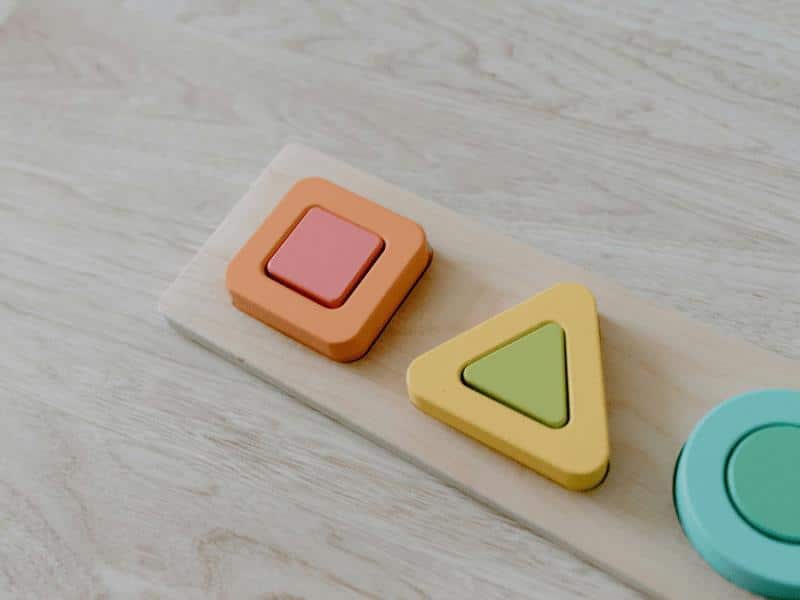
The impact of technology on children’s memory
In today’s digital world, the impact of technology on children’s memory has become an important topic for parents and educators alike. While digital tools provide access to vast information, they also influence how children develop memory skills.
The Changing Role of Memory in the Digital Age
The impact of technology on children’s memory is closely linked to cognitive offloading – the reliance on devices to store information we would otherwise remember ourselves. For young children, this shift in memory use affects their foundational skills in attention and recall. For example, we no longer need to remember phone numbers or directions, as these details can be stored in our phones. We might even find ourselves skimming information online, trusting that we can revisit it whenever needed. As Nicholas Carr explains in The Shallows: What the Internet Is Doing to Our Brains, digital convenience can sometimes lead to shallow processing, where we retain less information in our long-term memory.
This shift isn’t inherently negative. Technology allows us to access vast amounts of information and learn in new ways. However, for young children, whose foundational memory skills are still developing, relying solely on digital convenience can mean fewer opportunities to practice active recall and memory retention – the skills that help us think independently and solve problems creatively. At Shichida, we believe it’s essential to balance digital learning tools with memory-strengthening exercises to ensure children can thrive in both traditional and digital environments.
Why Memory Still Matters
Memory drives learning, problem-solving, and self-confidence. Building memory skills goes beyond just recalling facts; it strengthens a child’s ability to understand, connect ideas, and develop deeper knowledge. Studies reveal that a strong working memory – our brain’s “mental workspace” where we actively store and use information – predicts academic success even more reliably than IQ.
As parents, we value that memory skills allow children to move beyond surface learning and engage more deeply with what they’re experiencing. When we help children build memory skills early, they become better at processing information, following instructions, and thinking critically. This balanced approach equips them to use technology effectively as a tool while still drawing on their own cognitive abilities.
How Shichida’s Approach Complements Future Digital Learning
Shichida follows the philosophy that young children’s brains are primed to absorb, process, and retain vast amounts of information when we train them correctly. Our memory-based activities don’t aim to replace technology; instead, they work alongside it. These activities strengthen core cognitive skills, empowering children to engage with digital tools thoughtfully and in a balanced way.
Here’s how some of our memory-building activities develop memory in young children in today’s digital age:
- Picture Memory Games: These games teach children to memorise and recall visual patterns, a skill that supports both traditional learning and navigating digital interfaces that require spatial memory.
- Auditory Sequencing Exercises: Digital media often includes fast-paced auditory input, from sound effects to spoken instructions. Practicing auditory sequencing helps children build their ability to listen, process, and recall information in a structured way—skills that enhance both in-person and digital learning.
- Mnemonic Techniques: With mnemonics, children use fun, creative methods to retain information. These techniques strengthen their ability to remember concepts independently of digital reinforcement. Mnemonics build confidence in children’s recall abilities, giving them a toolkit for lifelong learning.
Shichida’s methods help children develop a strong memory foundation while also allowing them to learn, create, and think independently and critically.
How Memory Skills Affect a Child’s Future
When children develop strong memory skills early, they carry those skills throughout their lives. A child who is skilled in memory-based learning isn’t just equipped for academic success; they’re also more prepared for the challenges of life. Memory influences everything from problem-solving to social interactions and self-confidence. Children with robust memory skills tend to excel in areas that require focus, patience, and attention to detail, whether that’s in the classroom, on the playground, or later in their careers.
Strong memory skills also play a significant role in emotional resilience. Children who can remember social cues, follow conversations, and articulate their thoughts tend to form stronger relationships and feel more comfortable in group settings. This emotional intelligence, supported by cognitive skills, sets the foundation for a well-rounded, successful future.
The Balance Between Technology and Memory Training
The truth is, that most children will eventually use digital devices and resources once they start school.
Our goal is to provide children with a toolkit of cognitive skills that they can use in any environment; in or out of a classroom, while learning digitally or traditionally. When children have a well-rounded foundation in memory, attention, and recall, they’re better prepared to eventually use technology as a supportive tool rather than a crutch.
Shichida: Supporting All Types of Learners
Shichida’s adaptable methods are designed to be enjoyable and engaging, ensuring that all children feel empowered and confident in their own learning abilities.
Memory skills, unlike specific subject knowledge, are universally applicable. They allow children to take control of their learning journey, which can be particularly rewarding for children in today’s digital age, where distractions are plentiful, and information is abundant. By developing memory skills, children learn to focus on their goals, retain information with ease, and gain confidence in their natural ability to learn.
What Parents Can Do at Home to Support Memory Skills
Parents can support memory development at home with small, simple activities that encourage children to rely on their memory. Here are a few ideas to try:
- Storytelling: Encourage your child to recall details from stories you read together, building both memory and comprehension.
- Memory Games: Play matching games or ask your child to remember sequences of items, reinforcing active recall in a fun way.
- Practice Following Directions: Give multi-step instructions for a task and encourage them to remember each step, building focus and memory.
- Physical Memory-Based Activities: Try memory games that involve movement, like recalling actions in a song or dance.
These activities complement any digital learning they’re engaged with, building cognitive skills that are essential to well-rounded development.
How Shichida Prepares Children for the Future
Some Shichida graduates display extraordinary memory feats, such as recalling up to 1,000 items or memorising hundreds of decimal places of Pi. But beyond these impressive examples, Shichida children develop a love for learning, intrinsic motivation, and resilience. They arrive at school not only ready to excel academically but also equipped with the emotional and social skills needed to thrive in a group setting.
Shichida’s memory training also draws on traditional memory techniques, as Lynne Kelly explores in The Memory Code. For generations, indigenous cultures have used storytelling, visual imagery, and mnemonics to remember vast amounts of knowledge. By incorporating these methods, Shichida helps children build a toolkit of strategies for lifelong learning – skills that will serve them well in a world where both traditional and digital learning are essential.
Understanding the impact of technology on children’s memory is essential in today’s world. Shichida’s balanced approach helps children develop memory and cognitive skills that empower them to thrive in any environment, digital or otherwise.
Ready to Equip Your Child for a Balanced Future?
In a world where digital convenience is increasingly common, giving your child a solid foundation in memory skills is invaluable. Shichida offers a unique, balanced approach to learning that complements all learning styles, preparing children to think independently and excel in any environment.
By strengthening memory skills through programs like Shichida, we can help counterbalance the impact of technology on children’s memory, providing children with skills that make them resilient, adaptable, and capable of critical thinking both with and without digital tools.
To experience the benefits of Shichida’s memory training firsthand, book a trial class at one of our centres today. Join thousands of parents who trust Shichida to help their children reach their fullest potential – ready for both the opportunities and challenges of the future.


